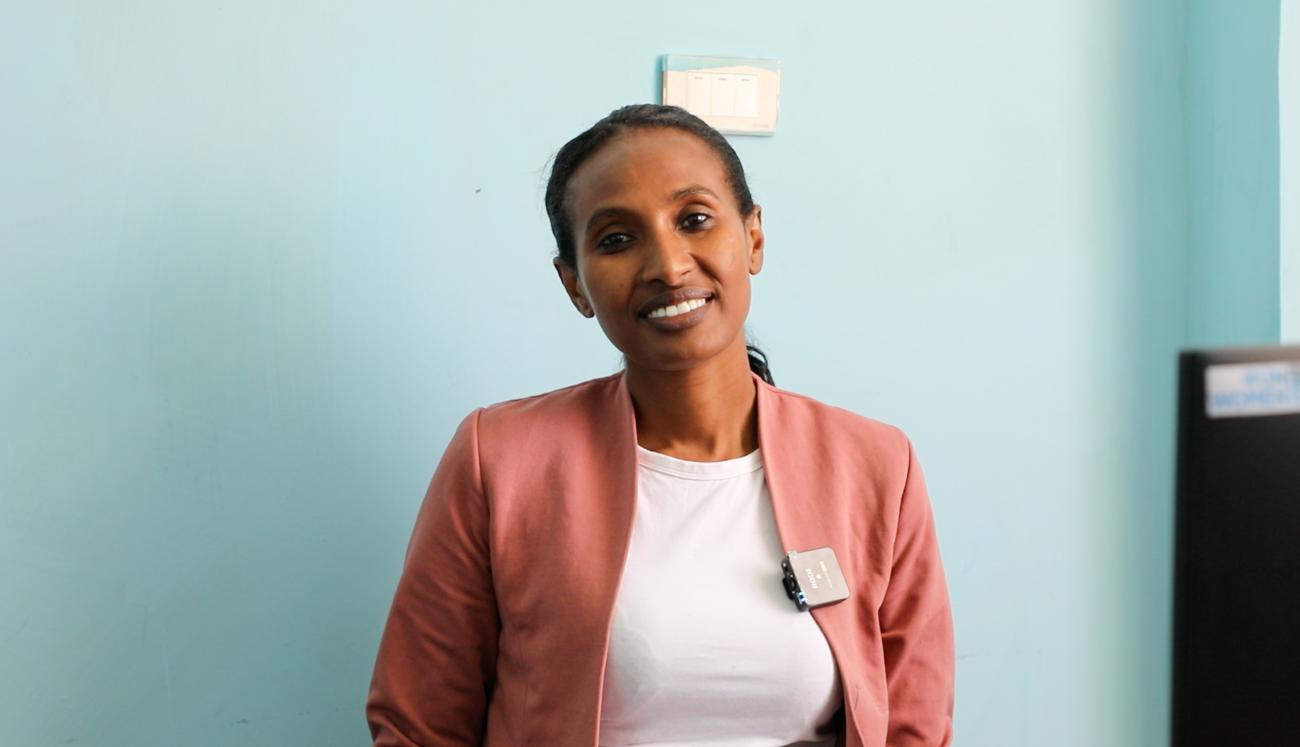Aziza Seid [name changed], 23, is a CRSV survivor residing in the Kombolcha shelter. During the conflict, fighters stormed her town, assaulted her, and destroyed her small business. Stigmatized by her community and family, she fled to Addis Ababa, where she worked as domestic help. After discovering she was pregnant as a result of the rape, life became increasingly difficult. Three days after she had given birth, her employers let go off her. She travelled all the way back to Kombollcha with her infant. Returning to Kombolcha, she sought help from the Women’s Affairs Office, which referred her to the shelter.
"I contemplated suicide and was not mentally stable. I knew I would not be a fit mother to my newborn and saw no hope to continue living,” Aziza said. "The shelter provided counselling, medical care, and basic literacy education. Step by step, I’ve started to read and write. I am now getting a training in embroidery and basket-making. I am now looking for a working space to start my own small business."
Comprehensive Support Services
The shelter, run by AWSAD with BMGF funding through UN Women, collaborates with the GBV response working group in Kombolcha, which includes police, justice bureaus, one-stop centers, education bureaus, religious institutions, the Women’s Affairs Office, as well as Coalition of Iddirs and influential individuals. "We work with the police and other organizations to address the challenges faced by survivors and to improve our response to their needs. We also engage with schools and community groups to raise awareness and carry out prevention work," explained Eden Seid, Coordinator of Kombolcha Shelter.
Mr. Kassahun Awol, Team Leader at the Women, Children, and Social Affairs Bureau in Kalu District, described the shelter’s impact: "Previously, we housed survivors in police stations, which was far from ideal. We didn’t have a safe space for them. In most cases, they couldn’t return home due to the presence of the perpetrators. Providing food at the police station was also a challenge. The shelter has addressed this challenge, providing a safe space and comprehensive support."
Women’s Affairs Offices are often key entry points for survivors seeking to report GBV cases. They are integral parts of the working group established to ensure a more coordinated GBV response. UN Women’s project aims to strengthen these structures are fully functional and effective.
As part of the BMGF-supported project "Addressing the Effects of Conflict-Related Sexual Violence (CRSV) in Ethiopia," UN Women Ethiopia partnered with AWSAD to provide comprehensive shelter services. These include safe accommodation, counseling, medical care, legal support, skills training, and economic opportunities for CRSV survivors and women affected by conflict in Kombolcha town, Amhara Region.



